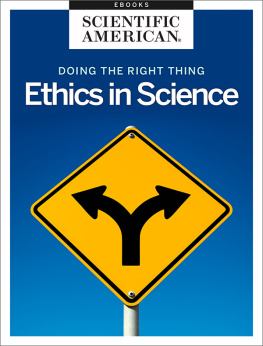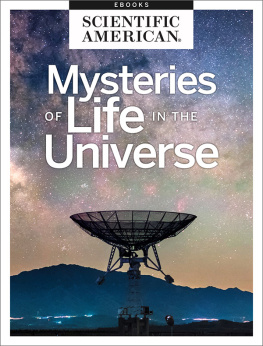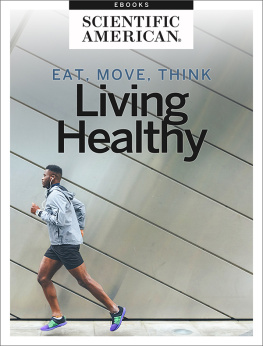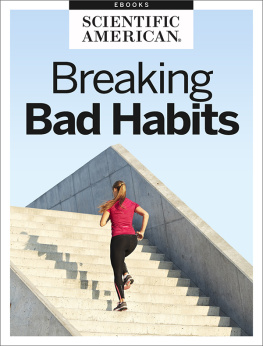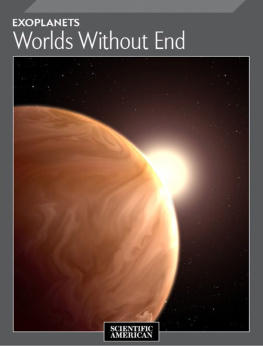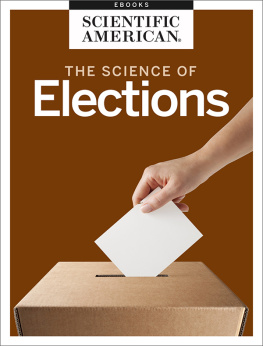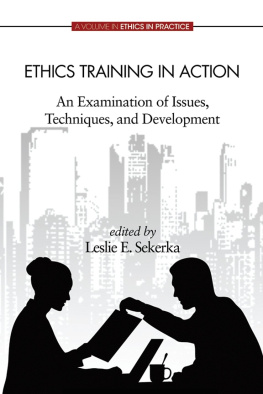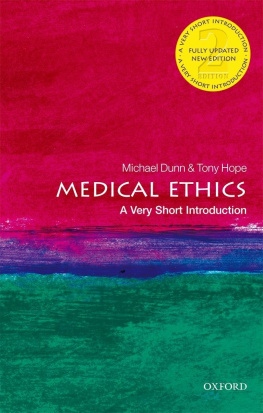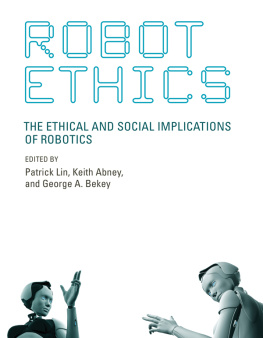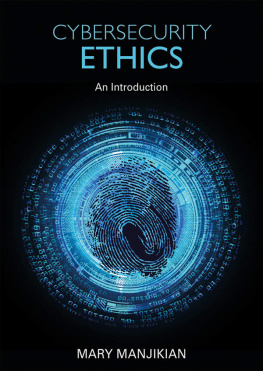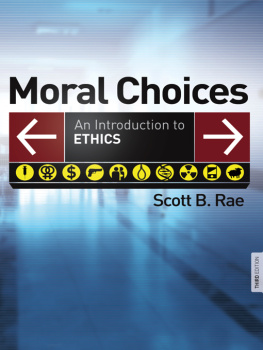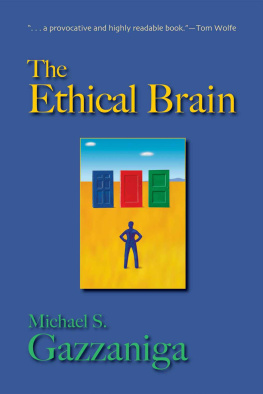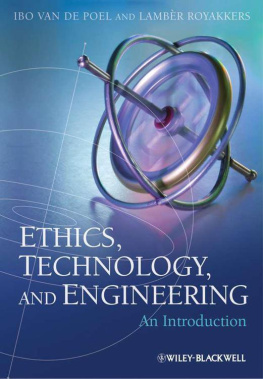Doing the Right Thing
Ethics in Science
From the Editors of Scientific American
Cover Image: Sezeryadigar/Getty Images
Letters to the Editor
Scientific American
One New York Plaza
Suite 4500
New York, NY 10004-1562
or editors@sciam.com
Copyright 2017 Scientific American, a division of Nature America, Inc.
Scientific American is a registered trademark of Nature America, Inc.
All rights reserved.
Published by Scientific American
www.scientificamerican.com
ISBN: 978-1-466842601


DOING THE RIGHT THING
Ethics in Science
From the Editors of Scientific American
Table of Contents
Introduction
by Jeanene Swanson
Section 1
1.1
by Sally Lehrman
1.2
by Katherine Harmon
1.3
by Mark A. Rothstein
1.4
by Ricki Lewis
Section 2
2.1
by David Biello
2.2
by Jamie Talan
2.3
by Katherine Harmon
2.4
by Janet D. Stemwedel
2.5
by Robin Marantz Henig
Section 3
3.1
by Katherine Harmon
3.2
by Katherine Harmon
3.3
by Judy Stone
3.4
by Charles Seife
3.5
by Gabriella Rosen
Section 4
4.1
by Katherine Harmon
4.2
by Janet D. Stemwedel
4.3
by Janet D. Stemwedel
4.4
by Janet D. Stemwedel
4.5
by the Editors
Section 5
5.1
by Katherine Harmon
5.2
by John M. Hoberman, Charles E. Yesalis
5.3
by H. Lee Sweeney
5.4
by Michael Shermer
5.5
by John Matson
Section 6
6.1
by Hubertus Breuer
6.2
by Jorge Moll and Ricardo de Oliveira-Souza
6.3
by Janet D. Stemwedel
6.4
by Ingrid Wickelgren
Science and Ethics
Most of us have probably had those discussionseither in a classroom setting or otherwisewhere a hypothetical situation is given and youre asked to choose between two or more unsatisfying options. If you follow option A, five people die; if you follow option B, one person dies. What do you do? Option B looks like the lesser of the evils, but then theres a wrinkle. Option B requires you to physically murder the one person to save five. Now what do you do?
Making ethical decisions involves more than listening to an inner moral compass, a feeling in the gut of whats right and wrong; and questions of ethics in science are becoming increasingly complex, especially as technology encroaches upon even our most private spaces, right down to our DNA. In this eBook, Doing the Right Thing: Ethics in Science , weve covered a wide range of areas in science and medicine where complicated ethical questions come to bear. We begin by taking a look at personal genetic tests and privacy in the first section, Genomics. The field of personal genomics exploded in the late 00s with companies such as 23andMe offering direct-to-consumer genotyping tests, which come with more questions than answers. In Are Personal Genome Scans Medically Useless, Sally Lehrman looks at the value, or lack thereof, in the information obtained from these tests. And Katherine Harmon discusses the debate of how such tests should be regulated in Genetic Tests for Consumers.
Making informedand ethically soundchoices are the basis of many scientific studies, and Sections 2, 3 and 4 analyze the challenges unique to three areas: medical, pharmaceutical and basic research. Medical ethics covers informed consent, doctor-patient confidentiality, and organ donation, to name a few. Outsourcing Medical Studiesand Ethical Quandariesto Africa by David Biello delves into the lack of medical ethics boards in Africa and how this affects participant safety and privacy in outsourced medical studies. Two articlesThe Ethics of Scan and Tell and Reporting Unrelated Findings in Study Subjectsexamine the questions that arise when research uncovers more than you bargained for.
Section 3 is devoted to ethics in pharmaceutical studies and clinical trials, including two superb pieces examining more common than realized ethical violations. In Is Drug Research Trustworthy? Charles Seife ferrets out doctors financial ties to pharma companies; in Studying Drugs in All the Wrong People, Gabriella Rosen breaks down why drug trials for psychiatric medications might be doing more harm than good to the people that need these drugs most.
Scientific misconductfabrication, falsification, or plagiarismcosts taxpayers up to millions of dollars a year, notes Katherine Harmon in Sections 4s The Cost of Misconduct. Academia can be cutthroat, to be sure, but its no excuse for falsifying data, plagiarizing or exhibiting gender bias in the lab and grant process, writes Janet Stemwedel in three excellent pieces. Finally, the award-winning (the 2012 Science in Society Award from the National Association of Science Writers) Ban Chimp Testing by Scientific American editors makes a case for the US to officially shut down experimentation on chimpanzeesone of only two countries worldwide that continues to do so.
Section 5 covers doping in sports, which ranges far and wide, especially in competitive cycling, baseball and other sports. The World Anti-Doping Agency (WADA) has begun to crack down on detecting these performance-enhancing drugs and methods with a new program called the athlete biological passport (ABP), which they hope will complement more traditional screenings.
Finally, after looking at the myriad of ethical conundrums and decisions facing the science community, Section 6 analyzes the process of how ethics come into play when we make decisions. Scientific debate, criminality, and even creativity are all influenced by our ethical minds.
Jeanene Swanson
Book Editor
Are Personal Genome Scans Medically Useless?
by Sally Lehrman
For $1,000 and up, several companies will scan an individuals entire genomefor clues about ancestry, potential health limitations and the inheritance of traitssuch as lactose intolerance. Clients can compare their DNA with a celebritys orinvite friends and family members to share genetic profiles. Despite thecomprehensive reports and background data these Web-based services deliver,some observers believe the information is more recreational than relevant.
Direct-to-consumer genetic tests have existed for at least a decade, and in recentyears the number of choices has exploded. Whereas most of these offerings probefor only a small number of gene variants, advances in genome chips now allow aquick, inexpensive search for a wide range of targets all at once. Navigenics inRedwood Shores, Calif., 23andMe in Mountain View, Calif., and deCODE Geneticsin Reykjavik, Iceland, began scanning for markers associated with as manyas two dozen conditions and traits. And for upward of $350,000, Knome inCambridge, Mass., enables customers to join J. Craig Venter and James D. Watsonin the elite cadre of humans who have had their entire genome sequenced, analyzed and interpreted.
With new tools, reference sequences and big study populations in hand, geneticists have found increasingly robust associations betweenDNA variations and disease susceptibility. But the data are still incomplete and sometimes conflicting, cautions Muin Khoury, directorof the Centers for Disease Control and Preventions public health genomics office. For now, he says, sequencing ones genome orscanning for susceptibility markers offers no useful information.

